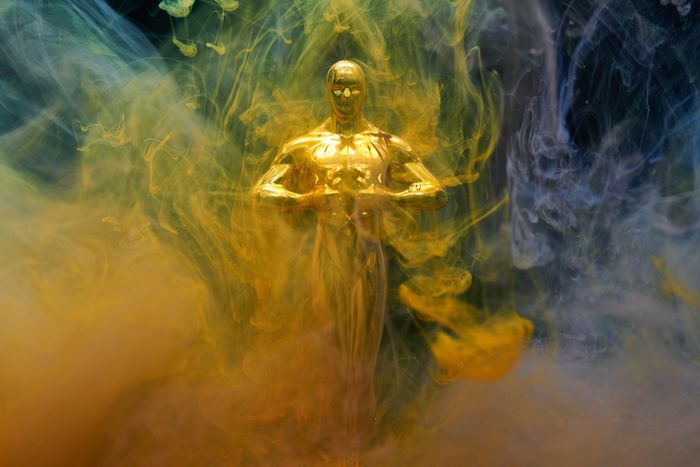How Aronofsky let The Whale sink
Prioritising sensationalism and provocation over three-dimensional story-telling, Aronofsky’s The Whale falls flat

Darren Aronofsky’s The Whale is almost profound.
Adapted from the 2002 play by Samuel Hunter, the film follows the final seven days of protagonist Charlie’s life. Charlie is an online writing teacher who has become a morbidly obese recluse following the death of his partner. From the beginning, Charlie knows his death is imminent. The film is not a struggle to survive. It instead follows his final dying wish to reconnect with his estranged daughter Ellie, whom he left behind with his ex-wife after falling in love with one of his students.
The film opens with a scene designed to nauseate. Charlie, sweatily splayed out on his couch, is masturbating to gay porn. The camera adopts a wide angle that pans to ensure the viewer takes in every inch of Brendan Fraser’s “fat suit”. Tragically, this act of self-gratification does not end in climax but in an almost heart attack. It is clear that Aronofsky is attempting to exacerbate the audience’s pre-existing prejudice and disgust towards obese people, by reducing Charlie to a humiliating caricature of someone Fox News would probably berate.
“Reducing Charlie to a humiliating caricature of someone Fox News would probably berate”
Aronofsky’s intention behind first presenting Charlie as a clear object of disgust seems to be in service of then gradually affording him redemption in our eyes during the film’s runtime. The director exploits the grotesque to make us first viscerally uncomfortable, only to then reveal that beyond this parody Charlie is (shocker) actually as complex as the characters of a Herman Melville novel.
Herein lies the feature’s biggest flaw: Charlie acts first and foremost as a melodramatic metaphor, a human embodiment of pity. Aronofsky endlessly weaponises him to make philosophical points about love and honesty and to make us snivel, only to flatten him into a two-dimensional symbol. After being sat for two hours in the Arts Picturehouse before this character, I am unable to comprehend what Charlie thinks and feels beyond the naff motivational quotes he religiously repeats. For Aronofsky, unconditional kindness is enough to redeem Charlie and assure us he’s worthy of love. For the audience, this unconditional kindness becomes progressively inhuman, as it patronises Charlie into a character lacking real substance.
Nonetheless, it is undeniable that Fraser beautifully portrays Charlie with great empathy, in a way the self-conscious, square cinematography does not. He’s a sure-in for the Oscar this year. Fraser’s performance, alongside most of the cast’s, is tender in a way that partly redeems the surrounding spectacle of The Whale.
“Aronofsky endlessly weaponises him to make philosophical points about love and honesty and to make us snivel, only to flatten him into a two-dimensional symbol”
However, these performances are not sufficient to stop the most interesting parts of the narrative from being obscured. During the film, Aronofsky often has us forgetting that The Whale is not at its core a study of obesity, but instead is primarily about queerness in relation to Christianity and the strained relationship between Charlie and his daughter. Charlie’s tragedy is not his weight, but that the man he loved was killed at the hands of the Church. Charlie’s complexity is his ability to maintain an unwavering faith in humanity despite this.
Aronofsky dilutes this with endless sensationalist shots of Charlie binge-eating and close-ups examining his body’s every wrinkle and fold. Yes, these communicate to us the result of years of self-loathing and shame but, no, they don’t meaningfully linger on the psychological roots of Charlie’s misery. He remains but a hollow martyr.
Near the end of the film, we discover that Charlie can actually afford hospital treatment and has himself chosen his morbid fate. However, this progressive insight into the character’s life is positioned as a lazy, thrill-inducing plot point rather than an intimate moment in which we learn Charlie’s true intentions. Similarly, Charlie’s daughter’s actions seem solely engineered to heighten the dramatic tension of the film, rather than to depict the reality of a troubled teenager. This again, reduces her to a cruel caricature that is often unbearable to watch.
All of this culminates in an impossible Aronofsky-esque ending that almost made me laugh out loud: Charlie finally manages to stand up before his daughter and then psychically rises to heaven. This no doubt was a very deep redemptive religious metaphor that went completely over my ignorant head. But while this melodramatic whiplash had me momentarily gaping — after having digested it — I was left as empty as Aronofsky’s creation.
The Whale is a film I have some trouble recommending. Depending on your personal relationship with food or self-image, it could be both touching or triggering. Ultimately, because of Aronofsky’s jarring cinematography and direction, it is a film that ends up aimlessly prioritising being provocative over truthfully telling Charlie’s story. For me at least, beyond a cathartic cry, it left me colder than the film’s colour palette.
 Features / Should I stay or should I go? Cambridge students and alumni reflect on how their memories stay with them15 December 2025
Features / Should I stay or should I go? Cambridge students and alumni reflect on how their memories stay with them15 December 2025 News / Cambridge study finds students learn better with notes than AI13 December 2025
News / Cambridge study finds students learn better with notes than AI13 December 2025 News / Dons warn PM about Vet School closure16 December 2025
News / Dons warn PM about Vet School closure16 December 2025 News / News In Brief: Michaelmas marriages, monogamous mammals, and messaging manipulation15 December 2025
News / News In Brief: Michaelmas marriages, monogamous mammals, and messaging manipulation15 December 2025 Comment / The magic of an eight-week term15 December 2025
Comment / The magic of an eight-week term15 December 2025









